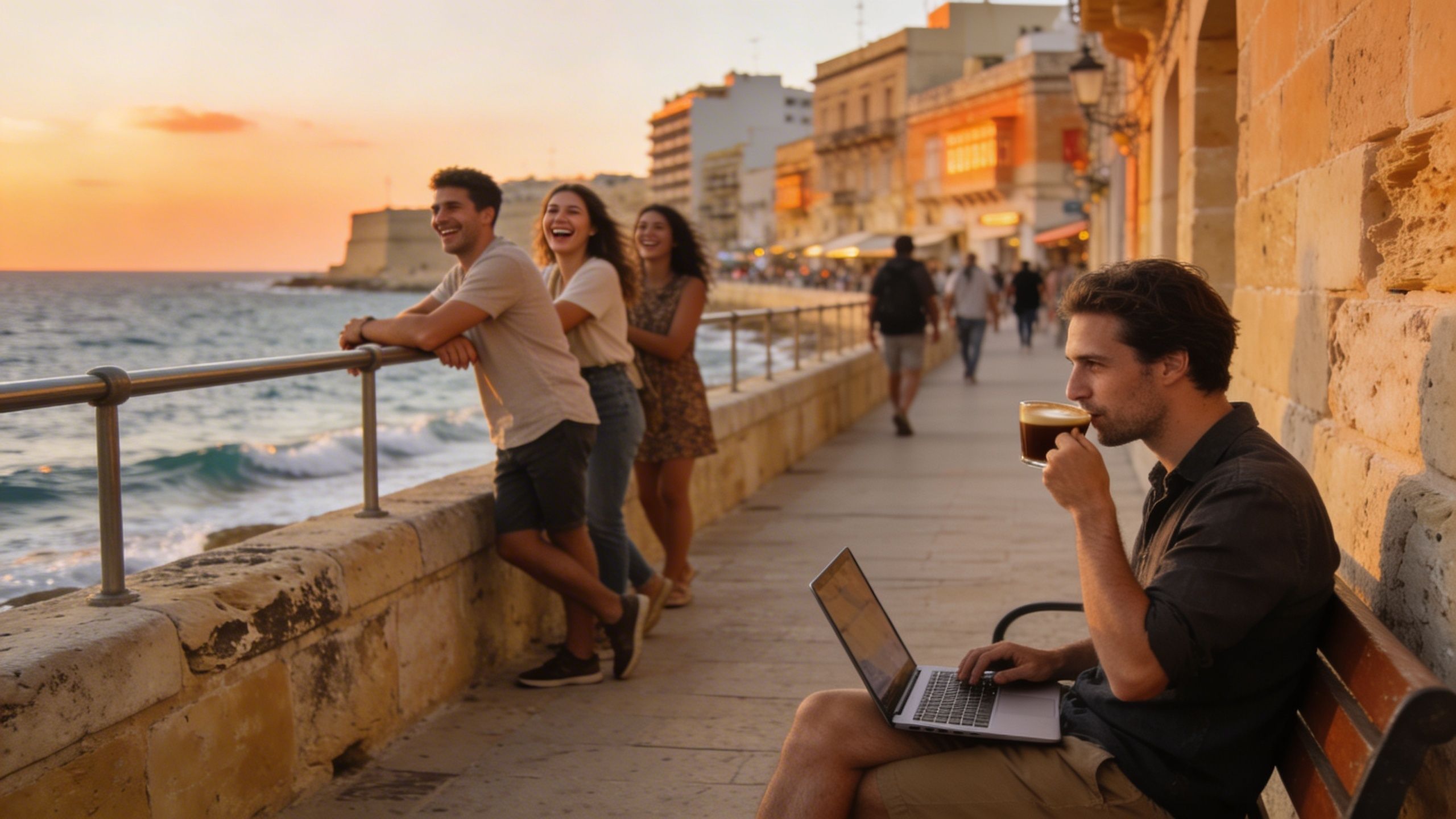Where France's Prices Hide Value (and Where to Look)
Forget national headlines — pick French neighbourhoods where daily life, coworking access and year‑round vibe match your nomad routine. Data and local tips inside.
Imagine sipping a café noisette on Rue des Martyrs, then cycling to a coworking loft in Canal Saint-Martin by noon. France isn't a single mood — it's seaside mornings in Nice, market Saturdays in Bordeaux, and quiet village winters in the Dordogne. That variety is why savvy buyers stop obsessing over headline prices and start hunting for neighbourhoods that fit their day-to-day life.
Living the French life — more textures than a price map

France feels lived-in. Morning markets, boulangeries with their 7am croissants, and long Sunday lunches set a daily rhythm. In cities you’ll find clattering bicycles, dog walkers and tiny bars that fill after work. Coastal towns trade hustle for sunlight and outdoor cafés. As a nomad, you care about walkability, decent internet, and places where you can plug your laptop in without an audience judging your screen time — and France delivers, if you know where to look.
Spotlight: Paris beyond the 1% — neighbourhoods where life actually happens
Yes, central Paris is expensive. But step into neighborhoods like Belleville, Nation, or the northern edges of the 11th and 20th and you’ll find vibrant markets, cafés where locals linger, and often better value per square metre than the headline arrondissements. These areas attract young creatives, offer coworking pop-ups, and have a rhythm that feels like the real city — not the postcard.
Spotlight: Regional gems — Bordeaux, Lyon, and hidden coastal towns
Regional hubs are where price meets lifestyle. Bordeaux and Lyon have buzzing food scenes and expanding coworking networks; Marseille offers gritty charm and waterfront life; and small coastal towns from Île d’Oléron to Bandol give seaside mornings without Riviera premiums. Coworking growth outside Paris means remote workers can settle where the pace suits them and still plug into community.
- Lifestyle highlights to scout in France
- Saturday marchés: Marché Bastille (Paris), Marché des Capucins (Bordeaux), and local Provençal markets — essential for weekend routines
- Coworking & coffee: Look for cafés with strong Wi‑Fi near coworking hubs in Lyon’s Croix‑Rousse, Bordeaux’s Chartrons, or Marseille’s Cours Julien
- Seaside ritual: Morning swims and lunch terraces in Bandol, Cassis, or Brittany coves — lifestyle that keeps long-term joy high
Making the move: practical house-hunting with the right lifestyle lens

Dreams meet contracts here. Recent INSEE data show prices stabilising and a gentle rebound in 2025 — good news for buyers who time smartly. But numbers don’t replace local knowledge: one street can be post-market chic while the next is commuter-noise. Match property style and neighbourhood rhythm to how you plan to spend weekdays and weekends.
Property styles and how they shape daily life
A Haussmann flat in Paris gives you iconic facades and café culture outside the door but small bathrooms and tricky layouts. A renovated townhouse in Aix‑en‑Provence offers a sun terrace and slower pace. A coastal villa brings outdoor living and rental potential — but consider insulation, humidity and maintenance. Pick the form that supports your workstyle: private nook for deep focus, fast fibre access for daily calls, and a terrace for social weekends.
Work with local experts who know lifestyle-first buying
Pick agencies or agents who actually live in the neighbourhoods they sell. Ask about internet speeds, daytime noise, nearby cafés with reliable Wi‑Fi, and whether a street fills with tourists in summer. A good local agent knows where value hides — quieter blocks near popular squares, or upcoming districts with new coworking spaces. They’ll also flag renovation realities that affect livability.
- Steps to a lifestyle-first offer
- 1) Spend a week living like a local: stay in the neighbourhood, do supermarket runs, and test morning commutes
- 2) Verify internet and phone speeds from the exact flat/house, not just the street (ask the vendor or local ISP)
- 3) Check seasonality: a sunny beach town might be deserted in winter — make sure you like off-season life
Insider knowledge: expat realities and surprising truths
Here’s the blunt part: French bureaucracy exists, but the bigger gap for many expats is social integration and realistic expectations. You’ll love the markets and the food, but you’ll also bump into closed shops on Mondays, stricter tenant rules, and a slower pace at local administrations. Knowing how locals live — times, habits, and unspoken rules — makes the move joyful instead of jarring.
Language, social life and finding your people
You’ll get farther with basic French than fancy certs. Learn market phrases, the names of local produce, and the cadence of polite conversation — it opens friendships. Join local meetups, language exchanges, or niche communities (cycling clubs, surf groups, tech meetups in Lyon) to build routine social life that keeps you anchored.
Long-term picture: when a neighbourhood becomes a home
Think beyond yield to lived value. Stable demand, local services, and seasonal balance make a place sustainable. INSEE’s recent rebound data suggest pockets of growth across regional France — places where quality of life and price trajectory meet. That’s where long-term happiness and capital resilience align.
- Red flags lifestyle-savvy buyers watch for
- Too-touristy streets that empty in winter — check year-round life
- Properties with obvious cosmetic fixes hiding poor insulation or structural risk
- Agents who can’t answer basic local questions (waste days, school routes, broadband options)
Conclusion: France rewards the curious buyer. If you choose neighbourhoods where the weekday routine excites you — markets, cafés with good Wi‑Fi, and community hubs — the rest falls into place. Start by spending intentional time in areas you love, work with agents embedded in those scenes, and verify the daily details that truly shape life. Then make an offer on not just a property, but a way of living.
Swedish, relocated to Marbella in 2018 to chase sun and property freedom. Focus on legal navigation and tax for Nordic buyers.


